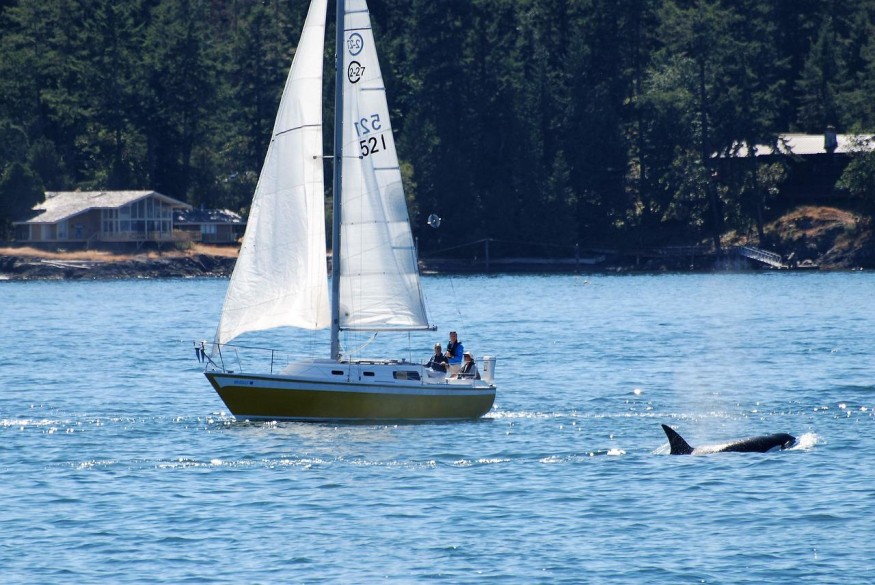Marine biologists have seen an increase in encounters between boats and killer whales in the Atlantic waters, particularly on European coasts, during the summer of 2020. Spanish News Today reported that sightings of killer whales were virtually unheard of before 2020, but many sailors have reported being chased and harassed by the whales.
Scientists believe these attacks were caused by a few overzealous orcas, wherein 15% of the time resulted in serious damage to boats. Killer whales are included in the List of Wild Species under Special Protection Regime and are considered vulnerable species in the Spanish Catalogue of Threatened Species.

Orcas Attacking Sailboats in Spain, Portugal, and France
In 2020, BBC News reported 40 attacks involving killer whales in Spain and Portugal in just six months. Such encounters between orcas and sailboats have continued since then; there was even an instance when a couple from the UK was left drifting miles off the coast of Portugal after some killer whales attacked their boat.
Earlier this month, Newsweek also reported a killer whale-human encounter that sunk a sailboat with five people onboard. The sailboat was about six miles off the coats of Sines when the orcas attacked. Fortunately, the crew members were rescued by a nearby fishing vessel and could go aboard a lifeboat, and no injuries were reported.
The Portuguese Navy said that the interaction with these mammals happens because of the curious behavior of juvenile orcas, who are attracted to the moving and noisy structures of the boat, like the rudder and propeller. That is why all sailors are advised to turn off their engines in the event of sighting orcas to inhibit the rotation of the propeller and immobile the rudder door.
A similar attack was also reported off the coast of France when a father and daughter encountered some orcas who were violently hitting their boat. The killer whales hit them in such a coordinated attack that they managed to push the boat turn 180 degrees in the opposite direction, damage approximately three-quarters of the rudder, and bend some metal in their sailboat.
Orca encounters are mostly reported on the coast of Portugal during the summer months, where they feed on tuna living around the Strait of Gibraltar. Despite being fearsome predators, they rarely attack humans.
Why are They Attacking Boats?
According to NPR, scientists do not exactly know why orcas are attacking sailboats in Europe. But they have some ideas that might have caused the increased orca-human interactions.
One of their ideas is that it happens because of the water pressure produced by the boat's propeller.CIRCE Conservación Information and Research president Renaud de Stephanissaid that it is as if the marine mammals are asking to have the propeller in their face, so when the engine is turned off, they get frustrated and break the rudder.
But that still does not entirely explain some encounters. Bay Cetology director Jared Towers noted that there is something about moving parts that seem to attract killer whales. Maybe that is why they are focused on the rudders.
Given that the population of orcas in Spain and Portugal is small, de Stephanis believes that only a few juvenile males are responsible for the damage to the boats reported in these areas. If so, that would mean that they will outgrow the behavior as they will need to help the pod hunt for food and will have less time playing near sailboats.
RELATED ARTICLE: Scientists Claim Killer Whales Attacking Boats Are Just Playing
Check out more news and information on Whales in Science Times.
© 2025 ScienceTimes.com All rights reserved. Do not reproduce without permission. The window to the world of Science Times.












